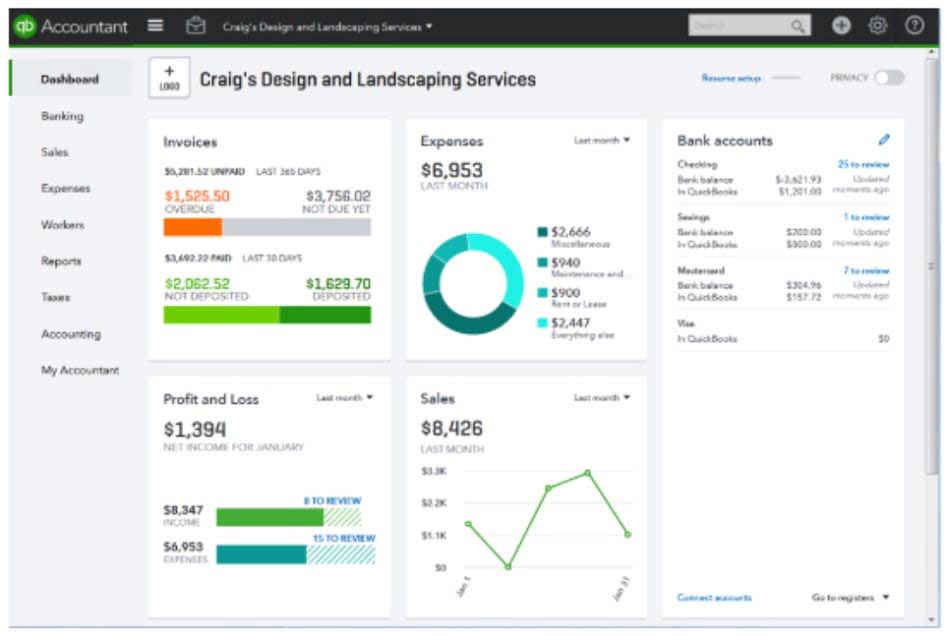Content

Bookkeepers are usually responsible for documenting or checking financial data for a company or client, including checks received or written, invoices, cost spreadsheets, and monthly or quarterly revenue. A bookkeeper is skilled at keeping documents and tracks a wide net of financial information. As an accountant, you must pay attention to figures and financial details, but it is more essential to possess sharp logic skills and big-picture problem-solving abilities. While bookkeepers make sure the small pieces fit correctly into place, accountants use those small pieces to draw much more significant and broader conclusions about a company’s finances.
- Jason Ding is a seasoned accountant with over 15 years of progressive experience in senior finance and accounting across multiple industries.
- The cash-based system of accounting records financial transactions when payment is made or received.
- This approach is time-consuming and subject to error, and so is usually reserved for adjustments and special entries.
- As part of the billing process, the bookkeeper also remits sales taxes to the government.
- The year-end reports prepared by the accountant have to adhere to the standards established by the Financial Accounting Standards Board (FASB).
Next, set aside a dedicated time either weekly or biweekly to review your bookkeeping, reconcile transactions and complete necessary data entry. Finally, you’ll want to decide how all receipts and documents will be stored. You can either keep hard copies or opt for electronic files by scanning paperwork.
Why QuickBooks
Others, like payroll, can be outsourced to independent companies that specialize in the task. Find out today how virtual bookkeeping services through QuickBooks Live can help your business. A small business can likely do all its own bookkeeping using accounting software. Many of the operations are automated in the software, making it easy to get accurate debits and credits entered. Bookkeeping focuses on recording and organizing financial data, including tasks such as invoicing, billing, payroll and reconciling transactions. Accounting is the interpretation and presentation of that financial data, including aspects such as tax returns, auditing and analyzing performance.
- Reconciling your bank accounts is an imperative step in bookkeeping because, after everything else is logged, it is the last step to finding discrepancies in your books.
- This makes them convenient for very small businesses but too simplistic for enterprises.
- You must have a minimum of 150 postsecondary education hours, or what amounts to a bachelor’s degree in accounting, and an additional 30 hours of graduate work.
- The information from a company’s balance sheet and income statement gives the accountant, at the end of the year, a full financial picture of the firm’s bookkeeping transactions in the accounting journal.
The accounting period affects all aspects of the company’s finances, including taxes and analysis of your financial history. Bookkeeping is a process of recording and organizing all the business transactions that have occurred in the course of the business. Bookkeeping is an integral part of accounting and largely focuses on recording day-to-day online bookkeeping financial transaction of the business. You also have to decide, as a new business owner, if you are going to use single-entry or double-entry bookkeeping. You record transactions as you pay bills and make deposits into your company account. It only works if your company is relatively small with a low volume of transactions.
What is BPO (Business Process Outsourcing)?
Companies also have to set up their computerized accounting systems when they set up bookkeeping for their businesses. Most companies use computer software to keep track of their accounting journal with their bookkeeping entries. Larger businesses adopt more sophisticated software to keep track of their accounting journals. If your company is larger and more complex, you need to set up a double-entry bookkeeping system.

Pursuing higher education and earning certifications can help expand your job opportunities, increase your earning potential and advance your career. Bookkeeping is a finance profession that involves tracking and recording an organization’s day-to-day financial transactions. Bookkeepers ensure accuracy and compliance with relevant federal, state and local finance laws and regulations. Diligent, proper bookkeeping allows organizations to track essential information to make critical decisions regarding finance, operations and investments. As a bookkeeper, your attention to detail must be almost preternatural.
What is the difference between Accounting and Bookkeeping?
Its features include automation of tasks, Gusto payroll processing, balance sheet production, income statements, accuracy checks and transaction databases. It’s common for owners of small businesses to attempt bookkeeping on their own, but it’s easy for bookkeeping to become an afterthought until tax time approaches. Choosing the right bookkeeping services for your small business will also free up time for you to focus on your company, easing a lot of stress. When your business is still growing, bookkeeping isn’t such a cumbersome task. But as the business gets larger, it can start to become a very time-consuming job. When deciding whether to use online bookkeeping services, it’s best to consider the amount of time (and therefore, the amount of money) that you’ll save with accounting software and a dedicated bookkeeper.
It involves recording transactions and storing financial documentation to manage the overall financial health of an organization. Most businesses use an electronic method for their bookkeeping, whether it’s a simple spreadsheet or more advanced, specialized software. The double-entry system of bookkeeping is common in accounting https://www.bookstime.com/ software programs like QuickBooks. With this method, bookkeepers record transactions under expense or income. Then they create a second entry to classify the transaction on the appropriate account. Proper bookkeeping makes tax preparation much easier, especially when you have separate accounts for business and personal use.
Create a free account to unlock this Template
At the end of the appropriate time period, the accountant takes over and analyzes, reviews, interprets and reports financial information for the business firm. The accountant also prepares year-end financial statements and the proper accounts for the firm. The year-end reports prepared by the accountant have to adhere to the standards established by the Financial Accounting Standards Board (FASB). These rules are called Generally Accepted Accounting Principles (GAAP). Qualifications for bookkeepers can vary depending on the company or organization. While it’s possible to qualify for bookkeeping roles with a high school diploma, many employers prefer candidates with degrees in accounting or closely related fields.
Related posts
Operating vs Non-Operating Revenue
Bookkeeping : 04.08.2023 : 0 ComentariiSeparating non-operating from operating income provides stakeholders and users of financial statements with a clear image and better knowledge on […]
Invoice Factoring: Everything You Need to Know
Bookkeeping : 24.07.2023 : 0 ComentariiAfter this review, if you are approved, you will sign a factoring agreement and begin the factoring process. The factoring […]
Direct Material Quantity Variance Formula and Calculation
Bookkeeping : 18.05.2023 : 0 ComentariiWith either of these formulas, the actual quantity used refers to the actual amount of materials used at the actual […]
Accounting Today Names Councilor, Buchanan & Mitchell a Leading Accounting Firm in the Capital Region for the Third Consecutive Year Councilor, Buchanan & Mitchell CBM
Bookkeeping : 28.03.2023 : 0 ComentariiContent Develop the essential skills that top-tier accounting firms require. Consumer Technology Overview Majority of U.S. Consumers Use Apps for […]